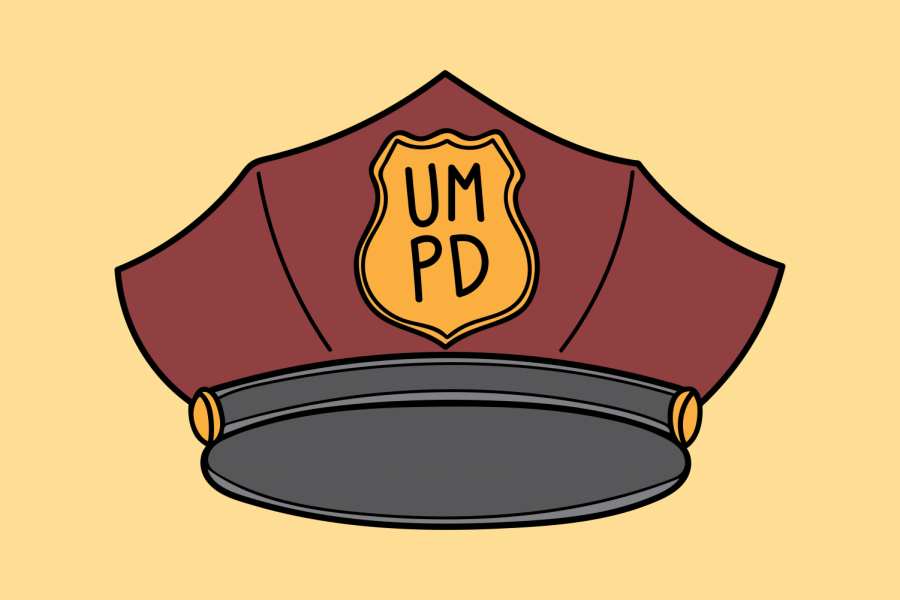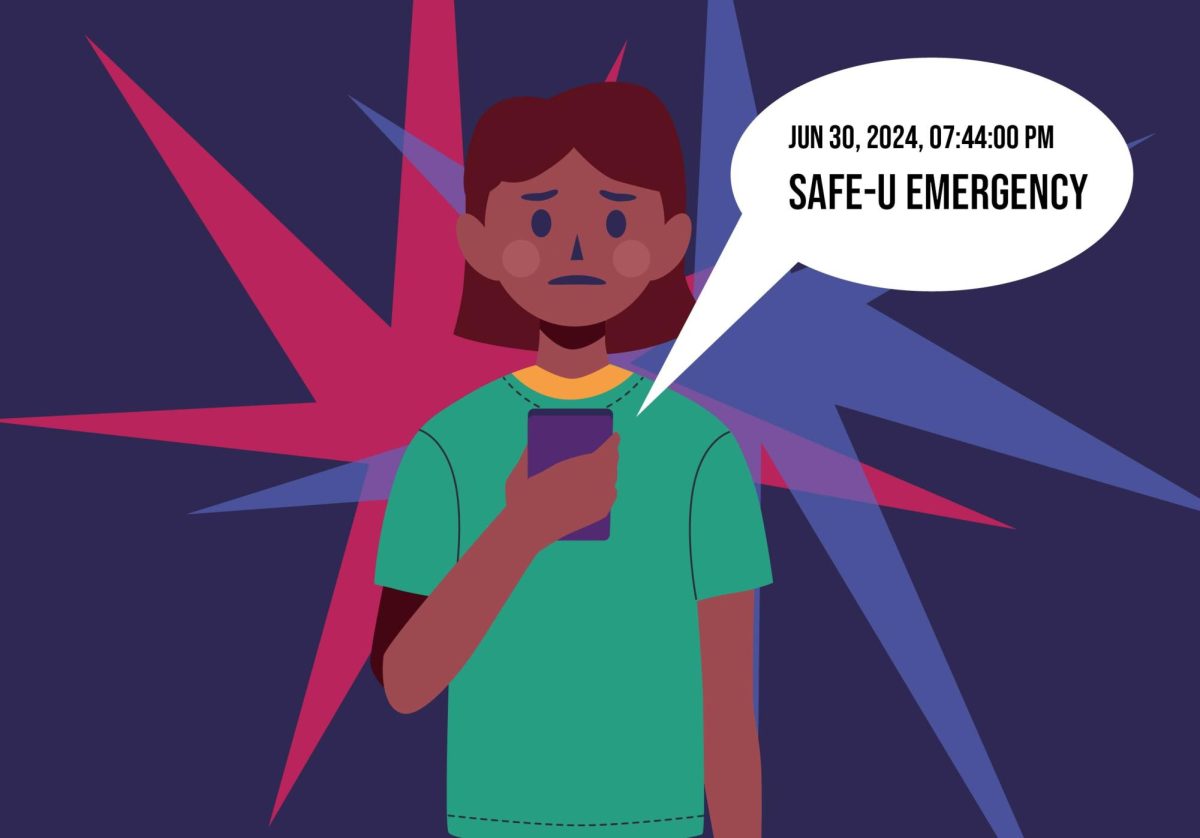Nearly six months after former Minneapolis police officer Derek Chauvin killed George Floyd, the University of Minnesota is undergoing several efforts to reexamine and reform campus police.
However, some say they feel change is not happening quickly enough.
The University Senate and Senate committees have been discussing several student-led reform proposals this month while the University’s consultant Cedric Alexander continues his review of UMPD. Student activists have voiced concerns about the University’s progress on police reform and oversight.
External review of UMPD
Following the announcement of his review in August, Alexander has been gathering community input on UMPD. He has met with over 200 individuals on campus, President Joan Gabel said at the Nov. 5 University Senate meeting.
Alexander’s contract with the University does not specify an end date for the review, but the University anticipates it will be finished towards the beginning of 2021. Alexander is paid $25,000 for each month he works with the University.
“[Dr. Alexander’s] input will provide valuable perspective on opportunities to enhance safety on the Twin Cities campus and it will be thoroughly considered. However, the University will not hesitate to consider ways to enhance public safety if necessary while Dr. Alexander finishes his work,” according to a University statement emailed to the Minnesota Daily.
The Campus Safety Committee
The Senate, which is part of the University’s governance structure and is led by Gabel, voted on Nov. 5 to form the Campus Safety Committee, a centralized group that will advise University leaders on campus safety and policing, among other responsibilities. A Professional Student Government task force pioneered the committee after Floyd’s death.
The Senate Consultative Committee (SCC), which is composed of faculty, staff and students and reports to the University Senate, urged senators to vote against the proposal. The committee cited a lack of consultation with governance committees and other stakeholder groups, and because members of the SCC said it would be beneficial to wait until after Alexander completes his review of UMPD.
According to a comment on the agenda for the November Senate meeting, “The SCC opposes adoption not because the suggested bylaw amendment lacks merit. Instead, it opposes the bylaw change at this time because this amendment would better be considered … after the final report from Dr. Cedric Alexander is available.”
In the comment, the SCC said it would consider approving the bylaw proposal for the Campus Safety Committee after Alexander’s report becomes available.
Despite the statement, the Senate approved the proposal with a vote of 119 to 48, with nine abstaining.
“A lot of people like [the idea of] a safety committee … There are problems with that particular proposal and also some significant concerns from Civil Service and from PACC,” SCC Chair Phil Buhlmann said prior to the Nov. 5 vote. “It just seems really premature. And we totally understand that everybody feels like we need results. We need results, but there’s just a little bit too much rush here.”
The proposal, which was initially presented to the senate in June, faced other criticism from University Senators due to its lack of representation from specific groups on campus, such as professional, administrative and civil service workers.
University stakeholders in and out of the Senate have also scrutinized the proposal because it does not have a clear plan to ensure students of color are represented on the committee.
“When we’re dealing with UMPD, and police presence on campus, it’s super important to make sure that Black and brown voices are centered, the folks that have been doing this for a really long time, rather than putting it in governance structures,” Minnesota Student Association President Amy Ma said.
While the SCC has been supportive of a Campus Safety Committee, it would have preferred more consultations and modifications from the proposal before the Nov. 5 vote, said Ned Patterson, the Vice Chair of the SCC in an email to the Minnesota Daily.
Some senators said they were opposed to the proposal because they feel students are overrepresented in the makeup of the committee.
Ongoing police review and activist criticism
Some student activists have said they believe that the Senate’s recommendation to wait until after Alexander’s review is finished to implement proposals is causing unnecessary delay to campus safety discussions and reform on campus
“I think it has definitely stalled a lot of these conversations. Coming into this consultation process, there was definitely skepticism from students and even within student government, that this was kind of seen as a way to delay the conversation,” Ma said.
Mattea Allert, a third-year graduate student and Speaker of the Council of Graduate Students, said some student UMPD reform proposals predate the review. Mattea also co-authored the proposal for the Campus Safety Committee.
“Students … were having these discussions well before Dr. Alexander ever came to campus,” Allert said. “It [doesn’t] make any sense for him to be used as an excuse to shut down various proposals that were created well before he came into the picture.”
Ma said that nationwide, advocacy can be delayed until the activists who are pushing for reform do not have the resources to continue. Similarly, some students pushing for UMPD reform could graduate and leave the University before their proposal is considered, she added.
Josh Lesser, the vice president of Professional Student Government and third-year law student also helped to write the Campus Safety Committee proposal.
“Students are still on campus and they want immediate action to be done by the University, to ensure that they feel safe,” Lesser said. “Hiring [an external] consultant is great for long term changes, but it doesn’t address the short term concerns that students have.”
Jack Flom, the MSA Representative to the Student Senate Consultative Committee, said they feel that there are demands from students that have not been heard by Senate leadership. Flom is also advocating for a proposal to gradually disarm all University system police departments.
Senate leadership response
Buhlmann said he believes the Senate has not been a barrier to University police reform. While consultation takes time, it exists to create long-term and effective solutions, and the University will benefit from waiting for Alexander’s review to make decisions about campus safety, he said.
“Sometimes consultation is slow … If you want to really have real big change, you need to do it thoroughly,” Buhlmann said. “To really cause a thorough change and make sure that the safety committee somehow in some form is really effective on campus, it needs to be also broadly accepted as an effective committee. And right now, we have various constituencies on campus that are not supportive of that current committee.”



























praiseinterracialmarriages
Nov 16, 2020 at 1:08 pm
Interesting article. As an alumnus, I daily read MN Daily online. I don’t know of the current concerns which students have for UMPD. Thirty years ago, the UMPD had problems exercising objectivity when it came to working with me, a student who was known to have bipolar depression and anxiety. The period, then, was recently marked by an individual with another kind of mental illness who shot both U.S. President Ronald Reagan and his press secretary, Jim Brady (who was a friend of a friend of mine).
The stigma that I and many others faced during that period was horrendous. I was beaten for a period of two years by two students associated with a medical student who knew of my diagnoses. A UMPD captain said, “Barry, you’re mentally ill. You bring on your own problems. Therefore, UMPD will neither investigate nor arrest anyone on your behalf.” His comments indicated emotional and intellectual bias. He had only known of me through my comments to him about my diagnosis and that several people were using stigma to judge me. It took an order for restraint from a Hennepin County District Court judge who also had bipolar depression to put an end to the nonsense.
I did not bring on my own problems, and had been a campus leader. The two men involved with the frequent beatings by Ford Hall and the Chemical Engineering Building, where a neighbor of mine from my south Minneapolis home was director of Chemical Engineering, knew of me through what I thought was a safe source to share my information. While I was known for talking a lot and being extremely direct with people with whom I disagreed, I did nothing to those students who beat me. One day, the abuse began, and it went on for two years. Throughout that period, I worked toward greater health with University medical professionals. It was a difficult time for me, as I was in uncharted waters and had self-hatred given the stigma that I, myself, placed on my diagnoses.
One of the students violated the order when he was seated next to me at a Chinese restaurant on campus with his girlfriend. I quietly approached him in a respectful manner, and in a manner such that his girlfriend could not hear, and told him that while he had ruined my academic career, as my grades slipped below a B average and I was not a strong candidate to get into graduate school, I forgave him.
Getting back to the article: It would have been nice for the journalist to recap what concerns students have about UMPD. I know that former Associate Vice President for Campus Health and Safety Paul Tschida, who was the chief’s supervisor, instituted a lot of positive changes in the department. Objectifying all officers for the bad judgment and behavior of a few officers is not good form or good political or social hygiene. Listing concerns with bullet points would clarify concerns for those of us who have been off campus for many years but who still concern ourselves with campus safety and other academic concerns.
I am wishing everyone well. Several people who I have known have been hospitalized for many weeks with Covid-19. Three family members of a friend of mine died in Canada and England, and my adoptive grandmother in Ghana is very ill and weakened by the virus, in the hospital, and on death’s door. Please wear masks, encourage others to wear masks, and distance yourselves in indoor settings.
Barry N. Peterson
College of Liberal Arts, Class of 1996
Minneapolis, MN